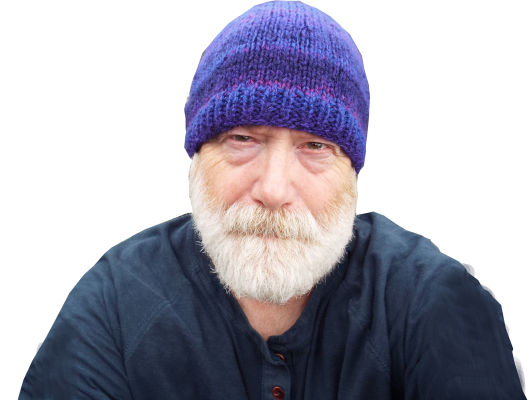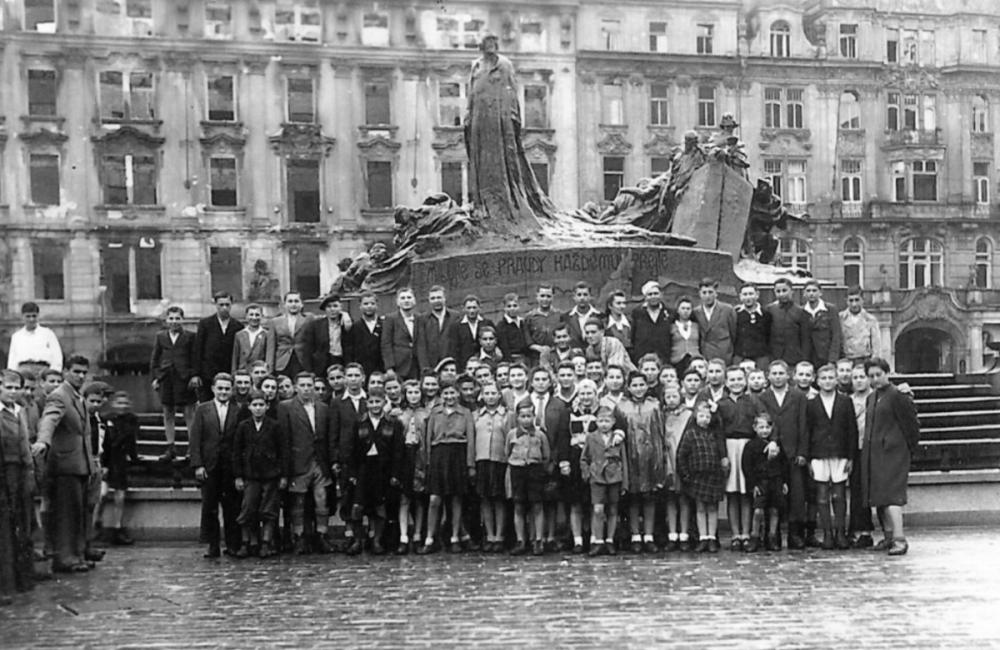search
date/time
 | Yorkshire Times A Voice of the Free Press |

Jonathan Humble
Features Writer
12:34 PM 3rd May 2021
arts
Wings On Windermere

Young Jewish Holocaust survivors in Prague awaiting airlift to the Lake District in 1945. Image courtesy of the Lake District Holocaust Project
One aspect which affected my teaching more than I anticipated was the prohibition of an activity which I’d taken for granted up until March 2020. Choral singing in primary schools had been banned due to the risk element involved with respect to the spread of the Covid-19 virus through large groups of kids exercising their lungs in confined spaces.
Revised timetables and routines, daily testing of temperatures, discreet learning bubbles, remote education and other contingency planning came into play in order to try and maintain some semblance of educational continuity … but singing was something that, for sound reasons, had to be shelved.
Being the music coordinator and someone who loves singing, I missed it dreadfully. Its place in the curriculum was secure and well established at my school and looking back to the time before the world was turned upside down, music had played a vital part in the education and wellbeing of the children at St. Oswald’s Primary.

Work done by Primary Schoolchildren involved in the Butterfly Project.
From 1996 to 2012, the school regularly performed in Making Music productions with other schools in the South Lakes area, involving choirs of up to 300 kids (1200 over a week) at Kendal Leisure Centre, in such local epics as ‘The Bigge Sister Conspiracy’ and ‘The Cumbrian Sheep of Doom’. In recent years, we also used to hop down the M6 to participate in the Young Voices extravaganzas, singing popular songs at the Manchester Arena.
One of the most rewarding concerts came about in the summer of 2014 in memory of victims of the Holocaust. We had been invited to take part in the Butterfly concert outside Windermere Library where several young choirs were brought together by songwriter and performer Andy Halsey to sing songs based on a poem written by Pavel Friedmann at Theresienstadt concentration camp on 4th June, 1942. We made butterflies for display, learned about the persecution and murder of innocent people during the Second World War and about the rescue from concentration camps of 300 Jewish children who began their journey of rehabilitation on the Calgarth Estate in 1945, arranged by Leonard Montefiore and under the direction of child psychologist Dr. Oskar Friedman. My class of ten-year-olds sang Andy’s songs in the Windermere sunshine in front of an appreciative audience commemorating lives lost and lives rescued in those turbulent and horrific times in the mid-twentieth century.

Short Sunderland
Friedman’s philosophy was a simple one: to aid their rehabilitation, the children should be given the maximum amount of freedom possible. Only rules that could be simply explained to the children should be imposed upon them. Ultimately, the resilience and bravery of the ‘Windermere Children’ shines through in the film, along with the professionalism, care, patience and love displayed by Friedman’s team and the determination of philanthropist Leonard Montefiore to rescue displaced young victims of Nazi hatred.
Also by Jonathan Humble...
Children's Poem Of The Week: Suitcase Poem By Michael RosenA View From The BalloonHello Balloonists!Brilliant Adventures In A Poetry Balloon: Second Anniversary!Karla Kane Comes To KendalBelow is a poem written for children about those events on the Calgarth Estate:
Wings On Windermere
In Troutbeck where they built the boats
that flew on wings from Windermere,
a part of Paradise prepared
for victims of a cult of hate.
Three hundred came from Prague that day
on Stirling bombers through the air;
the shadows of young boys and girls
who’d seen inside the Third Reich gates.
With marks of Hell upon their arms,
with features gaunt and hollow eyes,
what questions raced when they arrived
in Westmorland’s Calgarth Estate?
Instead of loathing based on race,
abuse that left them traumatised,
they found clean beds, fresh linen sheets
and buttered bread piled high on plates.
No more the shrill and callous voice;
they found a friendly word each day,
a lake to swim and woods to run,
a chance to learn and heal the pain.
And given paper, brush and paint,
some time to think, relax and play,
the children took a few steps on
the road to health; to smile again.
Less than a year for hope to spring,
a space to breathe, some dignity,
within this refuge by the lake
those summer months in forty-five.
From shadows how the children grew,
to rise against adversity,
when like the Calgarth flying boats,
from Windermere they learnt to fly.